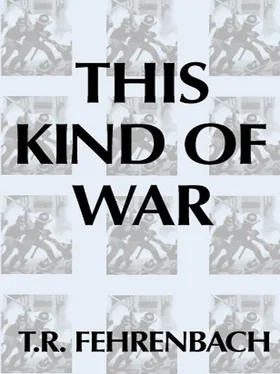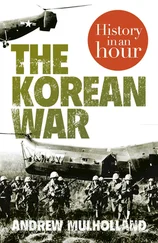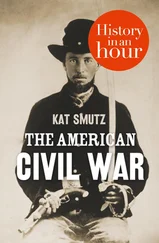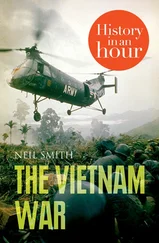Brigadier Genera Lee and his staff fled south.
Fighting stubbornly along the Tongduch'on-ni road, Yu Jai Hyung heard that the enemy was in Uijongbu. Flanked, about to be cut off, Yu ordered his attack broken off. Raggedly, the 7th Division fell back south of Uijongbu.
The 2nd Division had virtually disappeared; it was fighting now with disorganized small units. And during the unexpected retreat, 7th Division also began to come apart. Only the best trained and best led troops can execute an orderly withdrawal under heavy pressure. Outnumbered, outgunned and with no way to counteract the freezing terror—which the Germans call panzer fever—caused by the unstoppable Russian tanks, the 7th took frightful losses.
The NKPA 3rd and 4th divisions joined in Uijongbu, and again the tanks of the 105th Armored Brigade rolled south.
But now, as darkness fell on 26 June, there no longer remained any effective ROK force above Seoul that could affect the situation.
General Lee had disobeyed orders—but the complete shattering of his forces, even in defensive positions, revealed that even had he obeyed Chae and attacked, he would have failed. The ROK plan of maneuver had been hasty, ill advised, and impossible. A competent, adequately trained basic rifleman could be made in eleven months. Competent, well-schooled commanders and staffs could not.
There was nothing wrong with either the stamina or courage of the ROK soldier. Too many thousands of them died above Seoul proving otherwise.
On Sunday, 25 June, Colonel Wright, KMAG Chief of Staff and senior officer of that group now that Brigadier General Lynn Roberts had left, was in Japan. On Saturday night his wife had sailed from Yokohama for home, and Colonel Wright expected to follow her in a matter of days. But as he attended church services on Sunday morning, a messenger sought him out, bent over and whispered, "Colonel, you'd better get back to Korea right away!"
Wright left church and telephoned Seoul. What Seoul told him caused him to hop a plane, and he flew into Kimpo Airport just before dawn on Monday 26 June.
Before leaving Japan he set in motion a plan to evacuate American dependents from Korea. American ships were diverted to Korea, and Air Force cover was ordered for such ships. Planes were to screen the Norwegian fertilizer ship Reinholt as it left Inch'on early on Monday morning.
Now, in Seoul, Wright conferred with his boss, Ambassador Muccio, and they agreed to evacuate all of KMAG, too, with the exception of thirty-three officers Wright wanted to keep in ROK Army HQ. The word was passed, and KMAG officers began to leave the front. Most of them were flown to Japan from Suwon Airfield early the next morning.
All during the 26th of June, KMAG HQ in Seoul was getting confused but accurate reports from its officers in the field. The reports were not good.
And during the hours of darkness on 26 June, the Government of the Taehan Minkuk was getting accurate reports, too, despite what the people were told. And the Government of the Taehan Minkuk began to grow increasingly nervous. During the night it planned to move from Seoul to Taejon, ninety miles to the south. The members of the National Assembly engaged in acrid and shouting debate in the early morning; the National Assembly voted to remain in Seoul no matter what the ministers did.
Just after midnight on the morning of the 27th, Ambassador Muccio received orders from the Department of State to leave Seoul. He planned to take his staff south of the Han to Suwon, while Colonel Wright and his selected KMAG officers crossed to Sihung-ni, a town some five miles south of Yongdungp'o, to which ROK Army HQ had already gone, without notifying the Americans.
Now the American evacuation, which had been held in abeyance for two days, began in a sort of panic. Ambassador Muccio and his staff went to Suwon at 0900 Tuesday, 27 June. Under American fighter cover from Japan, the civilian and KMAG staff began to fly from Suwon Airfield. Behind them, the American evacuation of Seoul was both hasty and chaotic, and in some respects, tragic.
The fifteen hundred vehicles belonging to Americans, both government and private, were abandoned; no effort was made to turn them over to the ROK Army, which desperately needed them. More than twenty thousand gallons of gasoline were abandoned in the embassy motor pool. A tremendous amount of food, valued at $100,000, and the entire July quota of liquor-$40,000 worth, tax free—were left for the Inmun Gun.
But these losses, aid to the enemy aside, were replaceable. The ghastly mistake made during the early hours of 27 June was that the personnel records of more than five thousand Korean employees of the embassy were left in their files. While the confidential records of the American Mission were burned, no one thought of the dossiers of its loyal Korean workers—or more likely, no one on the embassy staff really understood the nature of the Communist foe they faced.
These files would fall into the hands of the Inmun Gun, and none of the employees who remained at their homes in Seoul would survive the Communist occupation.
But the 2,202 American citizens were evacuated from Korea, without loss of life.
Colonel Wright, as Chief of KMAG, drove to Sihung-ni to hunt up General Chae and the ROK Army HQ, who had taken off from Seoul without informing him.
On the way, Wright received a radio message from General MacArthur in Tokyo. MacArthur stated that the Joint Chiefs of Staff had directed him to take command of all United States military personnel in Korea, including KMAG. He was sending an advance command and liaison group—called ADCOM—into Korea at once. KMAG was home again.
Arriving at Sihung-ni, Wright received a fresh message from MacArthur: "Personal MacArthur to Wright: Repair to your former locations. Momentous decisions are in the offing. Be of good cheer."
Colonel Wright had no idea what was; up, but at least he recognized MacArthur's hand in the message. With both messages as authority, he began arguing with General Chae to return the ROK HQ to Seoul. It was not an easy task, but by evening of the 27th the HQ had returned to the capital.
But inside Seoul itself panic was erupting. The people had not been told of the failure of the counterattack at Uijongbu, but civilian refugees and wounded soldiers were streaming down into the city, and slowly a feeling of panic spread. North Korean planes flew over the city, dropping surrender leaflets. Fear grew. Then Marshal Choe Yong Gun, field commander of the Inmun Gun, beamed a broadcast into Seoul: "Surrender!"
By nightfall 27 June the city was in turmoil, and thousands of civilians began to flee southward over the Han bridges.
The military authorities in Seoul had devised a roadblock and demolition plan that was supposed to blow all bridges north of Seoul, and, on order, destroy the great modern spans leading south across the Han. But by dark on 27 June the civilian terror had spread to the soldiers, too. Men falling back from the north told of the terrible tanks that could not be stopped. It must be recalled that Korean soldiers had not even been told much about tanks, let alone given them, and the tanks assumed the proportions of invincible monsters as the tales spread. And the ROK Army had not even one antitank mine.
The roadblocks were not defended; the bridges to the north were not blown. Thousands of defeated ROK troops began to pour into Seoul, and as they did so, the rearguard detachments left to delay the enemy melted away.
And now a new menace appeared. Thousands upon thousands of Communists and Communist sympathizers had infiltrated Seoul during the years, and as the Inmun Gun approached, these men came out into the open. Suddenly no one could be trusted; even on the ROK Army Staff men began to shout "Communist!" and "Traitor!" at each other.
Читать дальше












